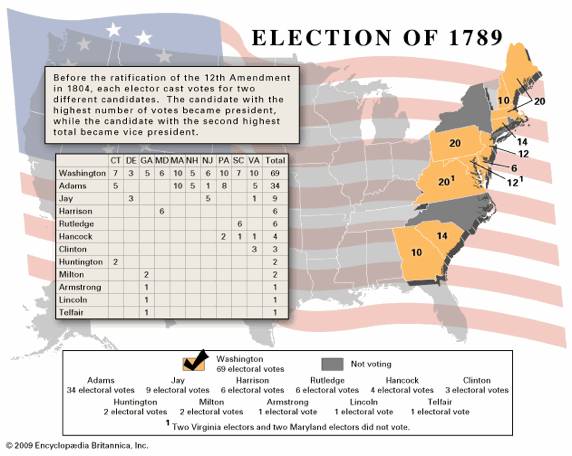“The Place of Execution”
On February 4, 1789 the new American republic held its first presidential election. On this historic occasion, the sixty-nine electors from ten states (North Carolina and Rhode Island had yet to ratify the Constitution and New York was unable to certify electors in time) unanimously selected George Washington to serve as the first president. John Adams, with thirty-six electoral votes, became the first vice president. Washington’s unanimous selection as president in both 1789 and 1792 remains a feat unequaled in American history.
Although countless young Americans would aspire to attain the nation’s highest office, Washington had genuine trepidation and a reluctance to assume the task. Washington himself stated that his taking office “will be accompanied with feelings not unlike those of a culprit who is going to the place of his execution.” In an age when politicians spend their careers and millions of dollars plotting to win the presidency, it is difficult to imagine why Washington, ambitious himself, would be so reluctant to serve in the nation’s highest office. The reason was simple: he had nowhere to go but downhill. As the father of American independence, Washington was already the foremost figure of his age. He had zealously built, cultivated, and guarded his sterling reputation as commander during the eight exhausting years of war and as the president of the Constitutional Convention. He knew that entering into the presidency was fraught with great, unforeseen risks to his preeminent stature. In a sense, he was right, as the presidency would expose him to the most vicious attacks of his career, some even coming from his own cabinet. Yet, for Washington to refuse the office altogether posed an greater risk for the infant republic. Almost everyone agreed that no one else had the prestige necessary for the nation to succeed. Despite the heavy cost to Washington, who genuinely desired to retire at Mount Vernon, his country’s desperate need for his services persuaded him to accept the presidency.

Map of 1789 Election, Source: Encyclopedia Britannica